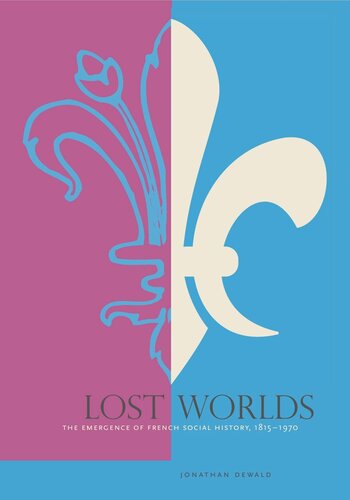

Most ebook files are in PDF format, so you can easily read them using various software such as Foxit Reader or directly on the Google Chrome browser.
Some ebook files are released by publishers in other formats such as .awz, .mobi, .epub, .fb2, etc. You may need to install specific software to read these formats on mobile/PC, such as Calibre.
Please read the tutorial at this link: https://ebookbell.com/faq
We offer FREE conversion to the popular formats you request; however, this may take some time. Therefore, right after payment, please email us, and we will try to provide the service as quickly as possible.
For some exceptional file formats or broken links (if any), please refrain from opening any disputes. Instead, email us first, and we will try to assist within a maximum of 6 hours.
EbookBell Team

4.7
76 reviewsToday’s interest in social history and private life is often seen as a twentieth-century innovation. Most often Lucien Febvre and the Annales school in France are credited with making social history a widely accepted way for historians to approach the past. In Lost Worlds historian Jonathan Dewald shows that we need to look back further in time, into the nineteenth century, when numerous French intellectuals developed many of the key concepts that historians employ today.
According to Dewald, we need to view Febvre and other Annales historians as participants in an ongoing cultural debate over the shape and meanings of French history, rather than as inventors of new topics of study. He closely examines the work of Charles-Augustin Sainte-Beuve, Hippolyte Taine, the antiquarian Alfred Franklin, Febvre himself, the twentieth-century historian Philippe Ariès, and several others. A final chapter compares specifically French approaches to social history with those of German historians between 1930 and 1970. Through such close readings Dewald looks beyond programmatic statements of historians’ intentions to reveal how history was actually practiced during these years.
A bold work of intellectual history, Lost Worlds sheds much-needed light on how contemporary ideas about the historian’s task came into being. Understanding this larger context enables us to appreciate the ideological functions performed by historical writing through the twentieth century.